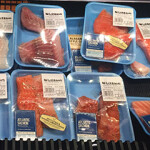Hong Kong, South Korea threaten to expand seafood bans after Fukushima water release advances

The Tokyo Electric Power Company (TEPCO) verified it has installed the last piece of equipment needed in an undersea tunnel to release advanced liquid processing system (ALPS)-treated water from the troubled Fukushima Daiichi nuclear power plant into the Pacific Ocean.
The ALPS process aims to remove most radioactive isotopes, allowing them to decay. However, purification cannot fully expel tritium, so TEPCO plans to dilute the treated water with seawater to bring the tritium content to within allowable levels and release it to the ocean via a one-kilometer-long underwater pipe.
Although the plant recently received negative attention when it came to light that its base had significantly corroded, the actual danger of the treated water release is insignificant. Releasing tritium produced from reactor operations into the sea is a common and safe process within limits.
Japan’s regulatory concentration limit for tritium in water is 60,000 becquerels per liter, and the World Health Organization’s drinking water standard guideline is 10,000 becquerels per liter. TEPCO’s aim for 1,500 becquerels per liter is 40 times more stringent than the national standard.
However safe it may be, some foreign governments are responding with threats of expanding existing bans on Fukushima-area products, including seafood, and testing requirements associated with the plant. Even some domestic groups are expressing grave concern.
On 22 June, Masanobu Sakamoto, the president of JF Zengyoren (National Federation of Fishermen's Cooperative Associations), handed Japan Minister of Economy, Trade, and Industry Yasutoshi Nishimura a resolution stating JF’s continued opposition to the release of the treated Fukushima reactor cooling water.
“The JF Group is committed to the decommissioning of the plant,” he said. “We, the JF Group, do not deny the decommissioning efforts themselves. However, we are opposed to the offshore discharge of ALPS-treated water, and this will not change in the slightest.”
JF requested Japan's government keep providing support to fishers impacted by the disaster and its aftermath, and to continue clearly communicate with fishers and the public about its actions and their impact, so as not to elicit any more bad publicity. It also asked that the government work to ensure Japanese seafood is kept safe to eat.
Despite the scientific consensus on the safety of the water release, on 11 June, Hong Kong Secretary for the Environment and Ecology Chin-wan Tse said he might ...
Photo courtesy of JF Zengyoren




Share